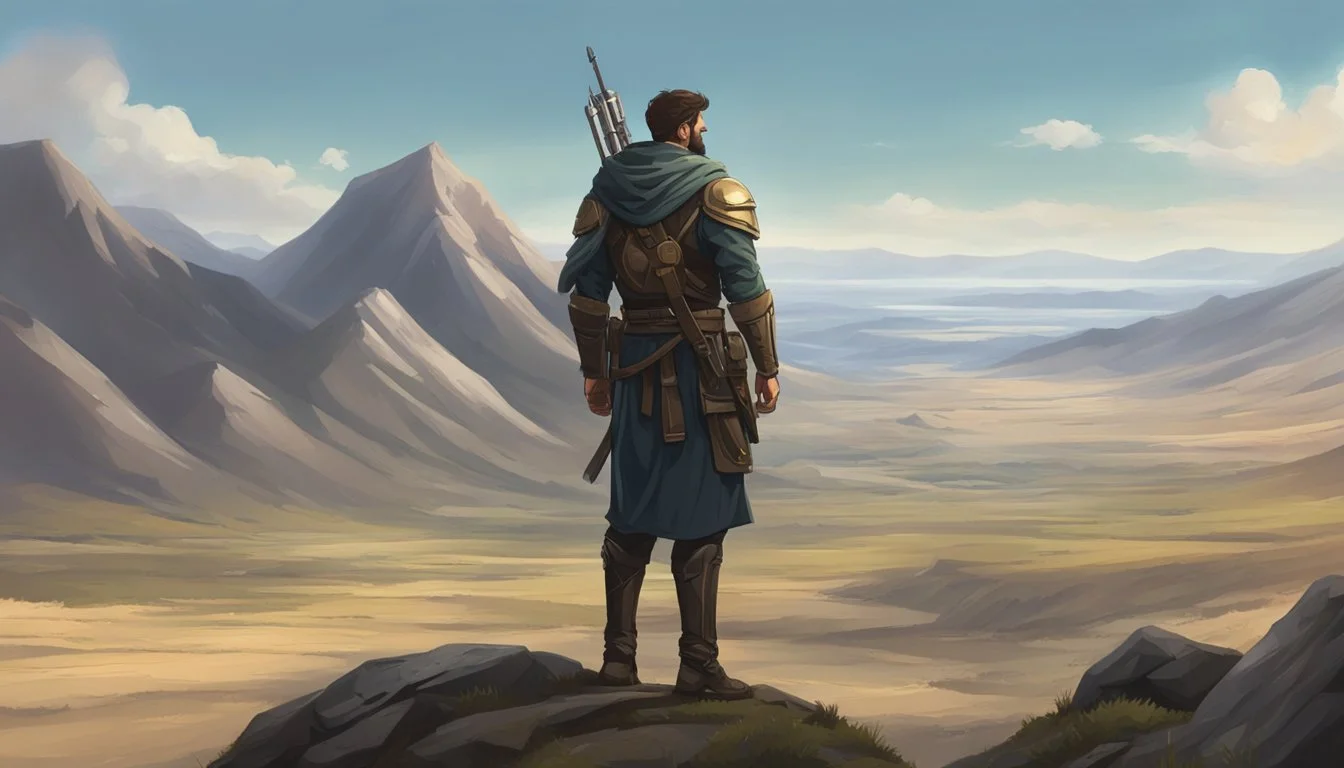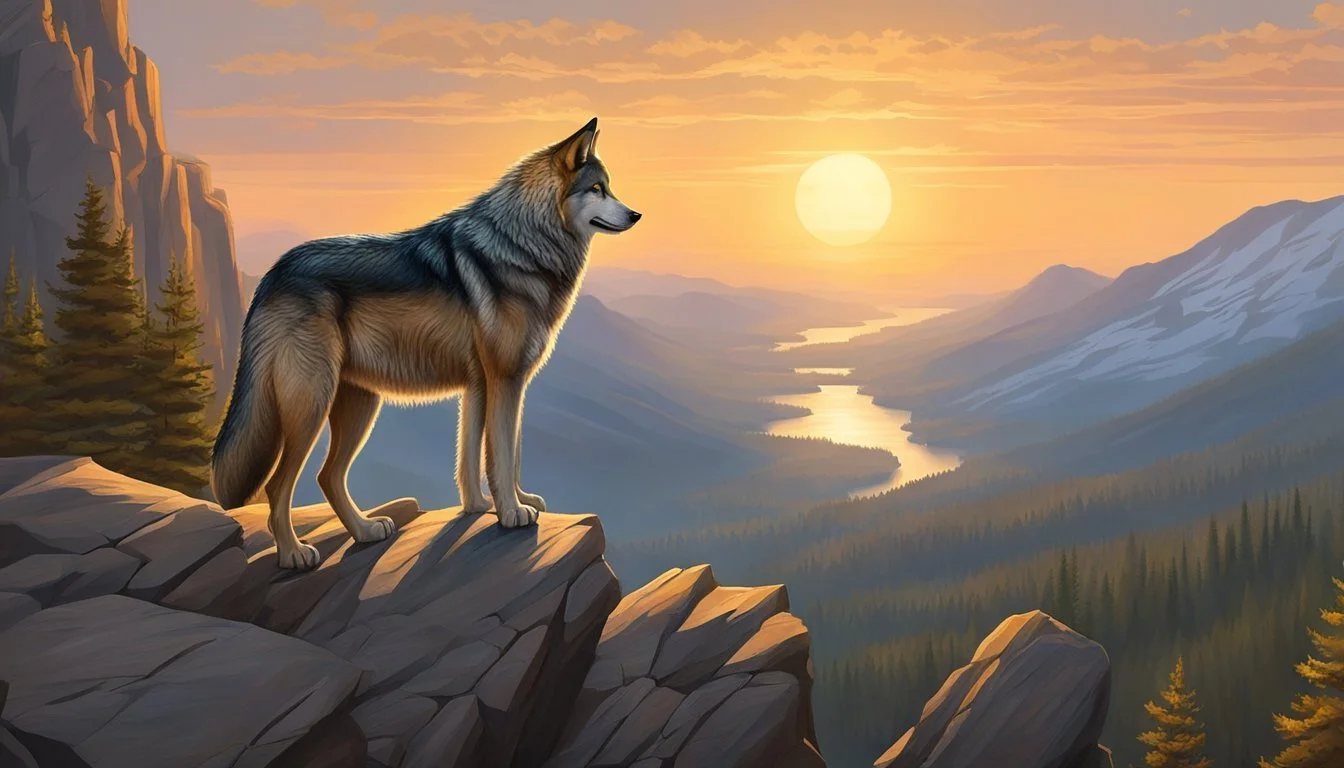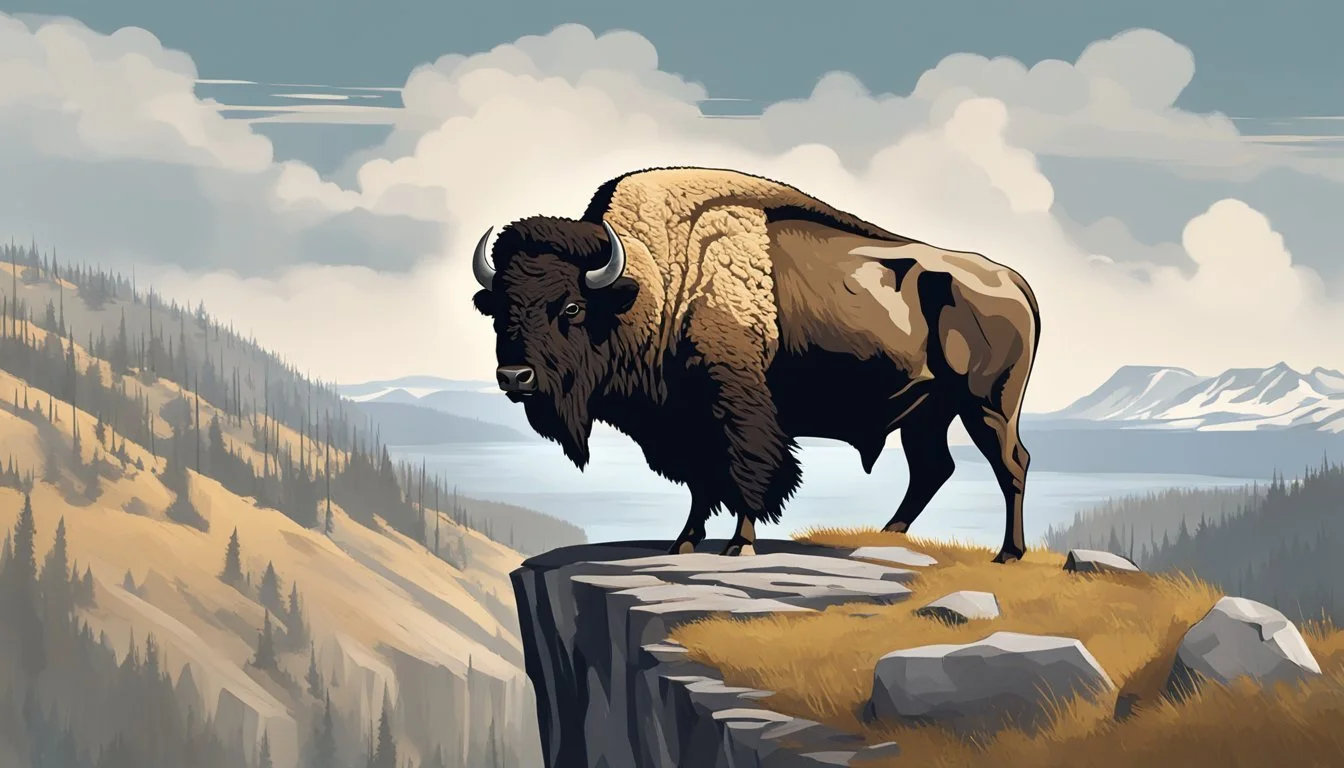Character Sacrifices: The Price of Power in Yellowstone
Examining the Moral Costs of Ambition
In the sprawling saga of "Yellowstone," character sacrifices shape the destiny of the Dutton family and their iconic ranch. The pursuit of power and preservation of legacy come at a steep price, with each character forced to make difficult choices that test their loyalties and values.
The Dutton family's relentless struggle to maintain control of their land has led to profound personal losses and moral compromises. From John Dutton's unwavering determination to Beth's ruthless tactics, the characters' actions ripple through their lives and relationships, leaving indelible marks on their souls.
As the series reaches its climactic finale, the consequences of these sacrifices become increasingly apparent. Alliances shift, enemies become allies, and the very future of the Yellowstone ranch hangs in the balance. The characters' journeys reflect the harsh realities of power dynamics in the modern American West, where tradition clashes with progress and family bonds are tested against the backdrop of a changing landscape.
The Heart of Yellowstone
Yellowstone captivates viewers with its stunning Montana scenery and complex family dynamics. The series intertwines the Dutton family's struggles with the harsh realities of modern ranching.
Depiction of Montana's Vast Landscape
Montana's breathtaking vistas serve as a character in their own right. Sweeping shots showcase the state's diverse terrain, from snow-capped mountains to rolling prairies.
The series highlights iconic locations like the Beartooth Mountains and Paradise Valley. These natural wonders provide a stunning backdrop for the drama unfolding at the Dutton Ranch.
Yellowstone's cinematography emphasizes the raw beauty and untamed nature of the American West. This visual splendor reinforces themes of freedom, isolation, and man's relationship with the land.
The Dutton Family Saga
At Yellowstone's core lies the multi-generational saga of the Dutton family. John Dutton, the family patriarch, fights to maintain control of his vast cattle empire.
His children - Beth, Jamie, and Kayce - grapple with their own ambitions and loyalties. Their complex relationships drive much of the show's drama and conflict.
The Duttons face threats from developers, Native American tribes, and rival ranchers. These external pressures test family bonds and force difficult choices.
Through the Duttons' struggles, Yellowstone explores themes of legacy, power, and the changing face of the American West.
The Symbolism of Yellowstone Ranch
The sprawling Dutton Ranch serves as a powerful symbol throughout the series. It represents the family's heritage, wealth, and connection to the land.
The ranch embodies traditional Western values like hard work, self-reliance, and respect for nature. Its vast acreage also symbolizes the dwindling open spaces of the American frontier.
For John Dutton, the ranch is his life's purpose and the legacy he hopes to pass down. This attachment to the land drives many of his actions and decisions.
The constant threats to the ranch's survival mirror larger conflicts between preservation and progress in the modern West.
Depiction of Ranching Life
Yellowstone offers a gritty, realistic portrayal of modern cattle ranching. The series showcases the daily challenges faced by ranchers, from harsh weather to fluctuating beef prices.
Viewers witness the physical demands of ranch work, including cattle drives, branding, and fence mending. These scenes highlight the skills and toughness required to succeed in this lifestyle.
The show also explores the economic pressures on ranchers. Rising costs, encroaching development, and changing regulations threaten traditional ways of life.
Through its depiction of ranching, Yellowstone raises questions about the future of this iconic American profession in a rapidly changing world.
Key Characters' Journeys
The main characters of Yellowstone embark on complex paths filled with difficult choices and consequences. Their individual journeys shape the overarching story and reveal the true cost of maintaining power and control over the Dutton ranch.
John Dutton's Leadership
John Dutton, portrayed by Kevin Costner, stands at the center of Yellowstone as the family patriarch. His leadership style blends ruthless determination with a deep love for the land. John faces numerous challenges to his authority, including political opponents, corporate interests, and family conflicts.
He makes difficult decisions to protect the ranch, often at great personal cost. John's journey involves balancing his role as a father with his duties as a rancher and political figure. His actions frequently put him at odds with his children, especially as he grooms them to eventually take over the family legacy.
John's character arc explores themes of legacy, sacrifice, and the lengths one will go to preserve a way of life.
Beth Dutton's Ruthlessness
Beth Dutton, played by Kelly Reilly, is John's fiercely loyal and cunning daughter. Her journey is marked by a relentless pursuit of her father's interests and a ruthless approach to business and personal relationships.
Beth's past trauma shapes her actions, driving her to protect the family at all costs. She uses her intelligence and sharp wit as weapons, often resorting to manipulation and blackmail to achieve her goals. Her relationship with Rip Wheeler provides a counterpoint to her hard exterior, revealing glimpses of vulnerability.
Throughout the series, Beth grapples with her own demons while fiercely defending the Dutton empire. Her journey explores themes of family loyalty, personal sacrifice, and the toll of wielding power without restraint.
Rip Wheeler's Loyalty
Rip Wheeler, portrayed by Cole Hauser, embodies unwavering loyalty to the Dutton family. His journey from orphaned ranch hand to John Dutton's right-hand man is a testament to his dedication and skill.
Rip's fierce protectiveness of Beth and his willingness to do whatever is necessary for the ranch define his character. His journey involves navigating the complex dynamics of being both an employee and a family member.
As the series progresses, Rip faces moral dilemmas that test his loyalty and force him to confront the consequences of his actions. His relationship with Beth adds depth to his character, revealing a softer side beneath his tough exterior.
Kayce Dutton's Internal Conflict
Kayce Dutton, played by Luke Grimes, experiences perhaps the most tumultuous journey of all the Dutton children. As a former Navy SEAL, he struggles to reconcile his military past with his role in the family.
Kayce's internal conflict stems from his desire to honor his Native American wife's heritage while remaining loyal to the Dutton legacy. He often finds himself caught between two worlds, forced to make difficult choices that impact both his family and the local tribe.
His journey explores themes of identity, duty, and the struggle to forge one's own path while honoring family obligations. Kayce's character development reveals the complex nature of loyalty and the personal cost of power struggles in the American West.
The Dynamics of Power
Power shapes every conflict and relationship in Yellowstone. Characters vie for control over land, resources, and political influence through alliances and betrayals.
Conflict with Broken Rock Reservation
The Dutton family's struggle with the Broken Rock Reservation forms a central power dynamic. John Dutton fiercely defends his ancestral ranch against the tribe's land reclamation efforts. Thomas Rainwater, played by Gil Birmingham, leads the reservation's push to regain territory.
Rainwater employs legal challenges and political maneuvering to pressure the Duttons. He sees regaining land as crucial for his people's economic future. John views the tribe's claims as an existential threat to his family legacy.
This conflict highlights complex issues of historical injustice and modern land rights. Neither side is willing to compromise, setting up ongoing tension throughout the series.
Duttons vs. Developers
The Yellowstone Ranch faces constant pressure from developers seeking to exploit Montana's natural beauty. John Dutton sees these outsiders as a threat to the traditional ranching way of life.
Developers offer landowners huge sums to sell, tempting many of John's neighbors. The Duttons use both legal and extralegal tactics to thwart development plans. This includes manipulating zoning laws and intimidating prospective buyers.
The conflict represents a clash between old and new visions for the American West. John's determination to preserve his land at any cost drives much of the show's drama.
Political Intrigue with Jamie Dutton
Jamie Dutton, portrayed by Wes Bentley, embodies the complex intersection of family loyalty and political ambition. As a lawyer and aspiring politician, Jamie often finds himself caught between his father's interests and his own career goals.
John tries to use Jamie's political connections to protect the ranch. However, Jamie's desire for independence creates ongoing friction. His actions frequently put him at odds with other family members, especially his sister Beth.
Jamie's storyline explores the personal costs of pursuing power. His choices highlight how political ambitions can strain even the strongest family bonds.
Narrative Themes and Motifs
Yellowstone interweaves complex themes and motifs that drive its compelling narrative. Power struggles, family bonds, and the clash between tradition and modernity form the core of the series' storytelling.
Loyalty and Betrayal
The Dutton family's loyalty is constantly tested against external threats and internal conflicts. John Dutton demands unwavering allegiance from his children and ranch hands. This loyalty often leads to moral dilemmas and difficult choices.
Beth's fierce dedication to her father contrasts with Jamie's wavering allegiance. The dynamic between these siblings highlights the thin line between loyalty and betrayal.
External forces, like land developers and rival ranchers, attempt to exploit cracks in the Duttons' united front. These challenges force characters to question their loyalties and make painful decisions.
Ambition and Sacrifice
Ambition drives many characters in Yellowstone, often at great personal cost. John Dutton's relentless pursuit to maintain control of his land leads to sacrifices in his relationships and ethics.
Beth's cutthroat business tactics reflect her ambition to protect the ranch, but come at the expense of her personal life and well-being. Kayce struggles to balance his ambitions with his responsibilities to both his native heritage and the Dutton legacy.
The show explores how characters' aspirations shape their choices and the prices they pay to achieve their goals. Personal happiness, moral integrity, and family ties are frequently sacrificed on the altar of ambition.
Redemption and Identity
Yellowstone delves into themes of redemption and identity as characters grapple with their past actions and future paths. Rip Wheeler's journey from troubled youth to John's right-hand man exemplifies the potential for redemption.
Jamie's struggle with his adopted identity and biological roots forms a central conflict. His quest for self-discovery leads to devastating consequences and raises questions about the nature of family.
The show examines how characters' identities are shaped by their choices, loyalties, and the harsh realities of their world. The pursuit of redemption often clashes with the unforgiving nature of the Yellowstone universe, creating compelling character arcs.
Production and Reception
Yellowstone's success stems from Taylor Sheridan's creative vision and strong audience reception. The show's production values and storytelling have garnered both critical acclaim and a devoted fanbase.
Taylor Sheridan's Creative Vision
Taylor Sheridan, the creator of Yellowstone, brought his unique perspective to the series. His background in acting and screenwriting informed his approach to crafting complex characters and compelling storylines. Sheridan's commitment to authenticity shines through in the show's portrayal of rural Montana life.
The Paramount Network provided substantial resources to bring Sheridan's vision to life. High production values, including on-location filming and attention to detail in set design and costumes, contribute to the show's immersive quality.
Audience Reception and Critique
Yellowstone quickly became a ratings hit for the Paramount Network. The show's blend of family drama, political intrigue, and stunning visuals resonated with viewers. Many praised the performances of the ensemble cast, particularly Kevin Costner as John Dutton.
Critics have noted the show's exploration of themes like land rights, Native American issues, and the changing face of the American West. Some viewers have criticized certain storylines or character developments, especially in later seasons.
Yellowstone Season 5 saw increased anticipation and viewership. The show's cultural impact expanded, inspiring discussions about modern ranching and Western values.
Cultural Impact
Yellowstone has profoundly shaped modern television and popular culture. The show's influence extends beyond entertainment, sparking discussions about family, power, and the American West.
Influence on Modern Western Genre
Yellowstone revitalized the Western genre for contemporary audiences. Its gritty realism and complex characters redefined expectations for modern Westerns. The show's success inspired a wave of similar productions, breathing new life into a once-fading genre.
The series blends traditional Western elements with current issues, creating a unique viewing experience. It tackles themes like land rights, political corruption, and environmental concerns, resonating with viewers across demographics.
Yellowstone's stunning cinematography showcases Montana's natural beauty, sparking increased interest in Western landscapes and tourism.
The Legacy of the Dutton Family
The Dutton family has become an iconic representation of power and legacy in American culture. John Dutton, portrayed by Kevin Costner, embodies a modern cowboy archetype that captivates audiences.
The Duttons' struggles and triumphs reflect broader societal tensions between tradition and progress. Their complex relationships and moral dilemmas spark discussions about family loyalty and the costs of maintaining power.
Yellowstone's popularity has led to multiple spinoffs, expanding the Dutton legacy across different time periods and locations. These spinoffs further cement the family's place in popular culture, creating a vast universe for fans to explore.
The show's impact on fashion and lifestyle choices is evident, with increased interest in Western wear and ranch-inspired decor.
Future Prospects
The Yellowstone saga approaches a critical juncture as Season 5 nears its conclusion. Major shifts in power dynamics and character arcs are poised to reshape the Dutton family's legacy and control over their coveted ranch lands.
Season Finale Expectations
Season 5's finale promises to be a watershed moment for the series. Tensions between the Duttons and their adversaries are set to reach a boiling point. Key characters may face life-altering decisions that will impact the ranch's future. The looming threat of land developers and political opponents could force John Dutton to make unprecedented sacrifices to protect his family's heritage.
Viewers can anticipate explosive confrontations and potential alliances forming in unexpected places. The finale may also set the stage for unresolved conflicts to carry over into future storylines.
Inheritance and Future Conflicts
The question of inheritance takes center stage as the Dutton children grapple with their roles in the family empire. Beth's business acumen, Kayce's divided loyalties, and Jamie's political ambitions will likely clash as they vie for control of the ranch.
Inheritance tax issues could pose a significant threat to keeping the land within the family. This financial pressure may force the Duttons to consider unconventional solutions or partnerships to maintain their grip on power.
Conflicts with external forces, including the Broken Rock Reservation and corporate interests, are expected to intensify. These battles will test the strength of family bonds and individual convictions.
Potential Spinoffs and Story Extensions
Yellowstone's success has opened doors for expanding its universe through spinoffs. The prequel series "1883" has already delved into the Dutton family's origins, and "1923" continues to explore their history.
Future spinoffs could focus on individual characters' journeys or explore different time periods in the Dutton saga. There's potential for series centered on younger generations of Duttons or delving deeper into the lives of supporting characters.
Story extensions might also explore parallel narratives within the Yellowstone universe, such as the inner workings of rival ranches or the political landscape of Montana. These expansions would offer fresh perspectives on the complex world created by Taylor Sheridan.







